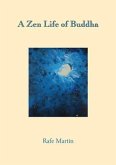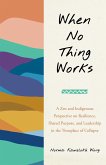Here you have the product of my thinking as an anthropologist who has studied and traveled to Japan for over thirty years.
In one sense, the book is an anthropological memoir in which I work through ideas of uncertainty and undifferentiation evident in the writings of Dogen as they relate to ethics and culture, but also explore other thinkers like philosopher Richard Rorty and anthropologist Clifford Geertz. I describe what I call the ethnographic outlook, which has the potential to generate humility, as a potentially powerful means to transform both self and society.
A central goal of the book is to explore the idea that all knowledge is inherently uncertain, including knowledge of right and wrong, and that the quest for certainty leads to many of the problems we see in the modern world. The book threads a discussion of jazz improvisation as a way of thinking about the human experience and presents the idea of the lead sheet as a metaphor for culture and the ongoing process of change that is the world.
In one sense, the book is an anthropological memoir in which I work through ideas of uncertainty and undifferentiation evident in the writings of Dogen as they relate to ethics and culture, but also explore other thinkers like philosopher Richard Rorty and anthropologist Clifford Geertz. I describe what I call the ethnographic outlook, which has the potential to generate humility, as a potentially powerful means to transform both self and society.
A central goal of the book is to explore the idea that all knowledge is inherently uncertain, including knowledge of right and wrong, and that the quest for certainty leads to many of the problems we see in the modern world. The book threads a discussion of jazz improvisation as a way of thinking about the human experience and presents the idea of the lead sheet as a metaphor for culture and the ongoing process of change that is the world.
Dieser Download kann aus rechtlichen Gründen nur mit Rechnungsadresse in A, D ausgeliefert werden.









